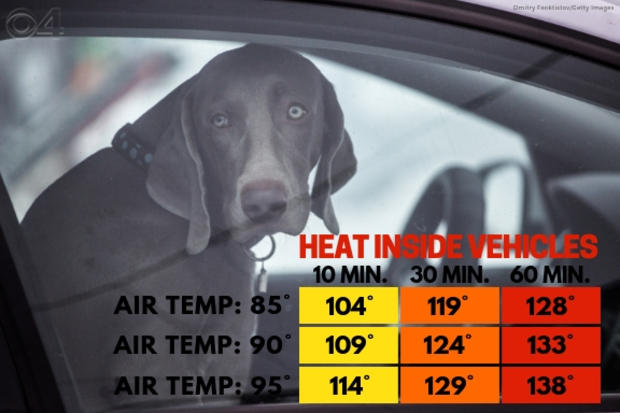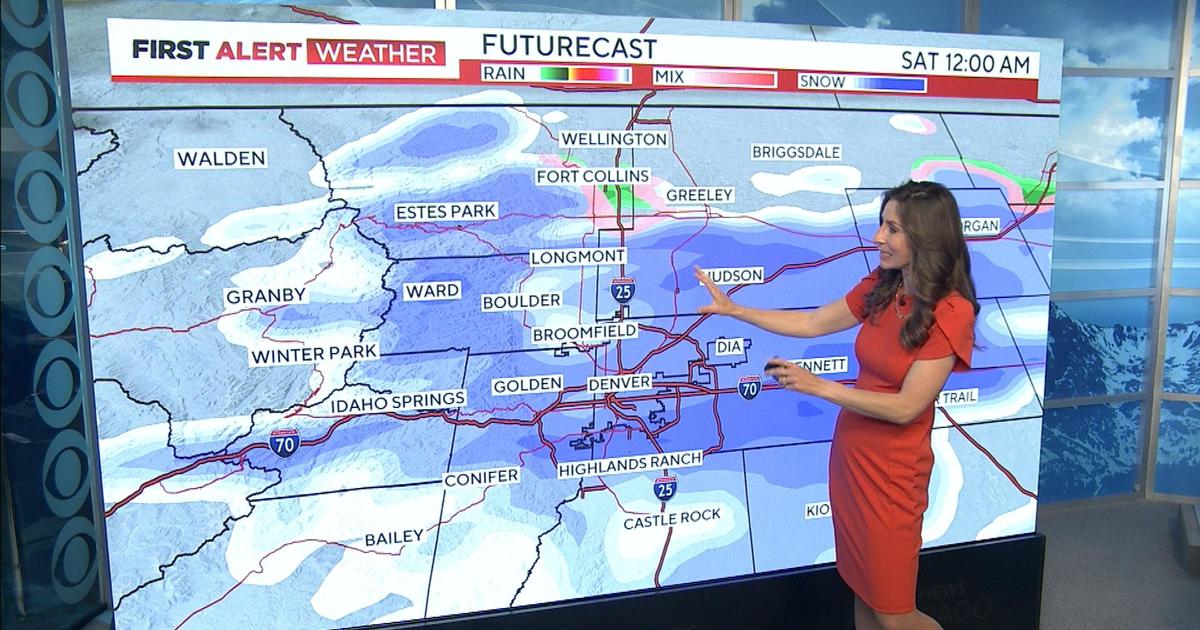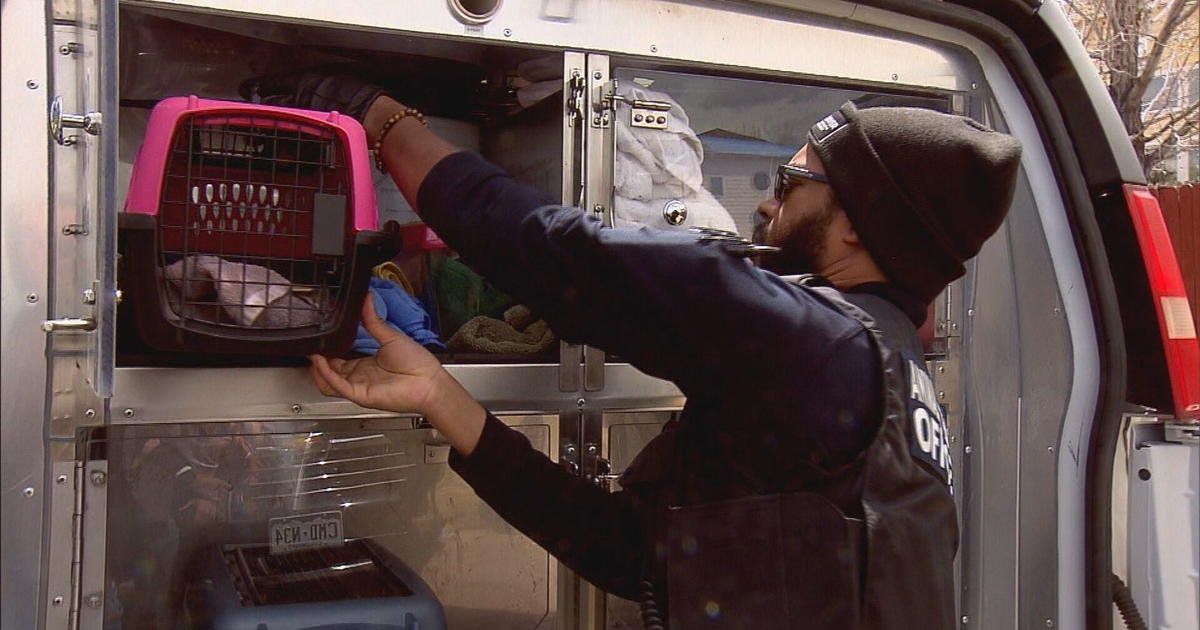Dog Dies In Hot Car In Colorado
DENVER (CBS4) - A dog died after being left in a car in northwestern Colorado on a day when temperatures were in the 80s.
"Garfield County Emergency Communications received a phone call from someone who was crying. There is a dog locked in a car, she said, the dog... the dog is not alive," the Rifle Police Department wrote on Facebook.
The dog owner told police she left the dog in the car with the motor running and the air-conditioning on high while she went to visit someone -- and lost track of time. An hour and 45 minutes later, she found the motor was no longer running and the dog was dead in the car.
"At this point, we don't feel it was intentional. But we have laws that cover unintentional neglect," Rifle Animal Control Officer Dawn Neely told CBS4. The owner could be facing a misdemeanor charge.
Neely said it's possible the animal accidentally turned the car off. The car was new, and investigators are checking to see if there are any recalls issued for the vehicle.
"I don't know that we're ever going to know why the car quit running," Neely said.
"Here's the message I'd like to get across: LEAVE YOUR DOG SAFELY AT HOME!" the police department urged. "Every year hundreds of pets (and, on average, 38 children!) die from heat exhaustion because they are left in a hot car. It's a horrible way to die. And it's easily preventable."
"Dogs can only tolerate higher temperatures for short lengths of time, much shorter than adult humans can tolerate," officials stated. "A dog's normal temperature is between 101 and 102.5⁰ F. When a dog's temperature reaches 105.8⁰ F, permanent brain damage begins to occur... The critical temperature where multiple organ failure and impending death occurs is around 107 to 109⁰ F."
Even if your dog seems OK after being exposed to intense heat, there may be internal damage.
"50% of dogs who initially survive heat exhaustion eventually die from complications and those that survive are more susceptible to heat stress in the future. The damage is permanent," officials stated. "Complications of heat stroke can show up a few days or even weeks later as damaged organs start to expire. There's such a narrow margin for error, it's not worth the risk."
The police department warned people about some common misconceptions:
- LEAVING THE CAR WINDOWS OPEN does not keep the vehicle from heating up. Research has shown that even with the windows rolled all the way down, the vehicle will reach the same temperature as those with the windows closed.
- PARKING IN THE SHADE helps but is not the solution. A car parked in the shade can still turn into an oven. As the minutes pass and the earth rotates, a vehicle parked in the shade can quickly become parked in full sun.
- LEAVING WATER FOR YOUR DOG may help keep the dog hydrated but will not prevent heat exhaustion. As we discovered above, vehicles heat up too fast and a dog's ability to cool itself just can't keep up.
- LEAVING THE AIR CONDITIONING RUNNING does not guarantee your dog's safety. Vehicles may overheat and stall when the engine gets too hot. Newer cars are designed to shut down before this happens (EPA regulations). When the motor shuts down, the air conditioner stops working or may even start blowing hot air.
Neely told the Glenwood Springs Post-Independent she responds to 40-45 calls on average every summer about animals left in vehicles.
Neely told the paper if people see a pet in a car and it's over 70 degrees, they should call their local authorities. Neely urged people to take note of is the license plate, make, model and color of car. If they can, the reporting party should stay on scene; or, if there is more than one person on scene, go to the nearest business and have the car owner paged.
"Your dog wants to go for the fun, comfortable things, it doesn't want to be cooked - have a better plan," the paper quoted Neely as saying.




